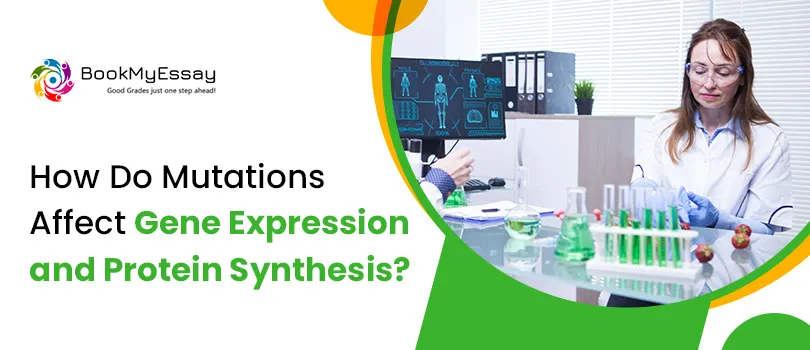In the world of molecular biology, gene expression and protein synthesis are essential processes that maintain cellular function and development. But what happens when these processes are disrupted by mutations? Understanding this connection is crucial for students pursuing genetics or molecular biology, especially when working on challenging assignments. If you’re struggling with this topic, services like Genes and Protein Synthesis Assignment Help from BookMyEssay can be a reliable academic partner.
What Are Mutations?
Mutations are changes in the DNA sequence of a gene. These alterations can occur spontaneously or be triggered by environmental factors such as radiation, chemicals, or viruses. Depending on their nature and location, mutations can have various effects—some are harmless, while others significantly impact gene expression and protein function.
Impact on Gene Expression
Gene expression involves transcribing DNA into mRNA and then translating that mRNA into proteins. Mutations can interfere with this process at different stages:
- Promoter Mutations: These mutations occur in the gene’s promoter region and can alter how transcription factors bind. As a result, the gene might be under-expressed or over-expressed, leading to imbalances in protein production.
- Splice Site Mutations: These affect the splicing of pre-mRNA, potentially leading to incorrect mRNA sequences. The final protein might be non-functional or absent entirely.
- Regulatory Region Mutations: Mutations in enhancers or silencers (regions that regulate gene expression) can mislead the cell into activating or deactivating genes at inappropriate times.
How Mutations Affect Protein Synthesis
Protein synthesis is highly dependent on the accuracy of the mRNA template. Any error in the DNA can lead to faulty mRNA, and consequently, defective proteins:
- Point Mutations: These involve a change in a single nucleotide. If it results in a different amino acid (missense mutation), it may affect protein structure or function. A nonsense mutation, however, introduces a premature stop codon, producing truncated, non-functional proteins.
- Frameshift Mutations: Insertions or deletions that are not in multiples of three nucleotides shift the reading frame, altering every amino acid downstream. This often produces a completely nonfunctional protein.
- Silent Mutations: These don’t change the amino acid sequence and usually have no effect. However, some may influence the speed of translation or protein folding.
Understanding these concepts is vital for students aiming to grasp molecular genetics. Still, assignments on these topics can be overwhelming. That’s where My Assignment Help at BookMyEssay becomes a useful resource. Their academic experts provide detailed explanations and customized help, making complex topics more approachable.
Conclusion
Mutations can drastically alter gene expression and disrupt protein synthesis, leading to serious consequences in an organism’s development and function. Whether you’re studying for exams or writing complex assignments, getting professional assistance can boost your understanding. With My Assignment Help from BookMyEssay, you can ensure your academic work is accurate, well-researched, and delivered on time.






 3 Bellbridge Dr, Hoppers Crossing, Melbourne VIC 3029
3 Bellbridge Dr, Hoppers Crossing, Melbourne VIC 3029



